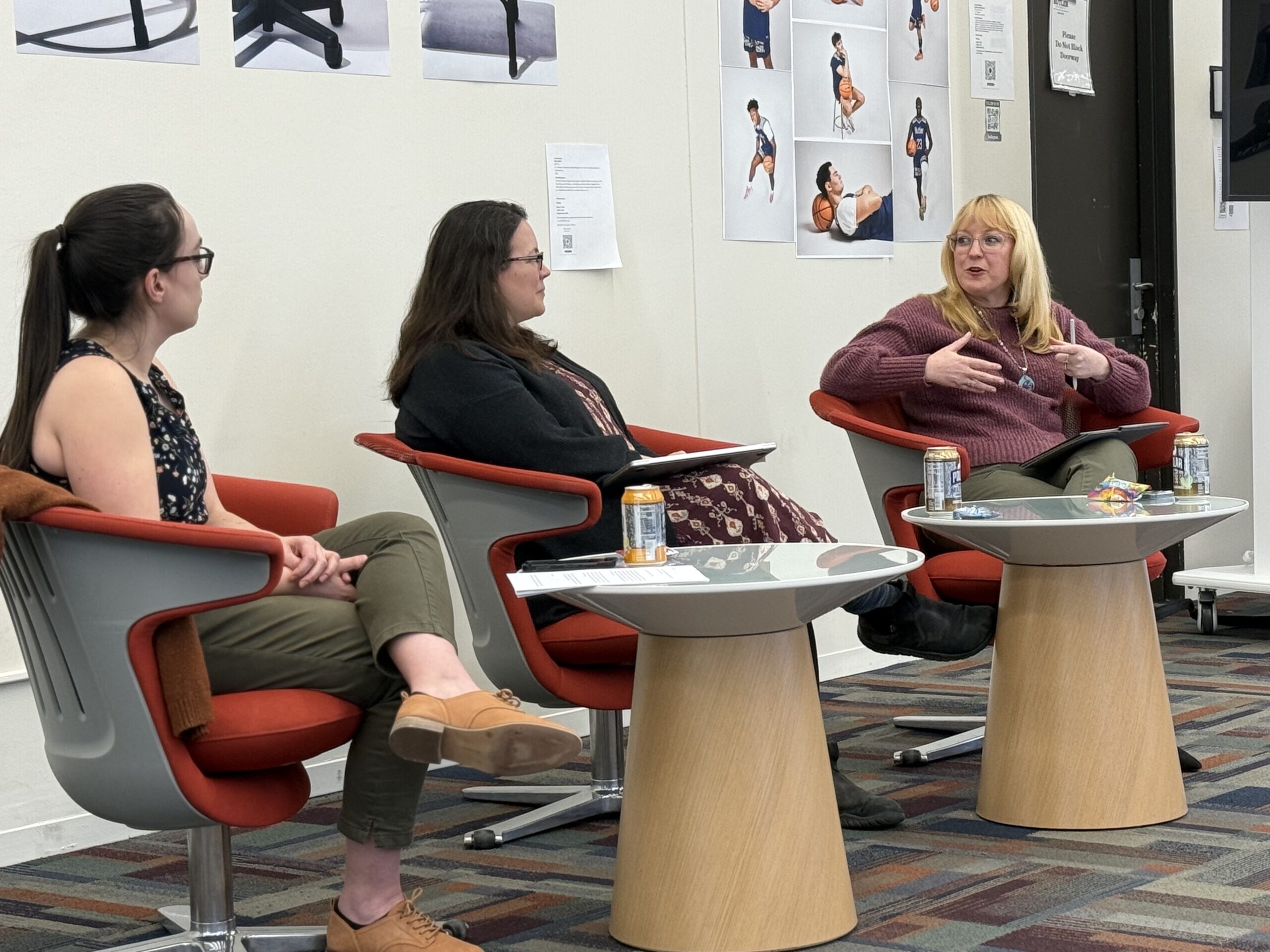Professors from many different fields hosted a discussion panel to remember the challenges they saw and faced during the COVID-19 pandemic. Photo by Lily O’Connor.
LILY O’CONNOR | NEWS CO-EDITOR | lkoconnor@butler.edu
March 2025 marks the five-year anniversary of the World Health Organization declaring COVID-19 a global pandemic. Assistant professor of history Molly Nebiolo hosted “COVID-19: Five Years Later,” a memorial event and the launch of the Butler COVID-19 Oral History Digital Collection, on March 18.
Nebiolo started the event with a discussion panel called “Storytelling, Memory and Disease” with Susanna Scott, an assistant professor of health sciences, and assistant professor of anthropology Julie Searcy where they reflected on research they did in their respective fields during the lockdown.
Nebiolo shared about past pandemics and how the primary accounts align with what people faced during the COVID-19 pandemic. She said that this research prompted her to begin the oral history project.
“I think we are at a point where students want to reflect on it, society is still greatly impacted by it, but nobody really talks about it,” Nebiolo said. “It gives us a moment to pause and reflect on ‘How did we get here?’, ‘What can we continue to remember?’ and ‘How can we record those stories?’, so that 100 years from now people can think about it.”
The launch consisted of over 42 oral history interviews with Butler students of all years from two of Nebiolo’s classes and Scott’s First-Year Seminar class. The videos were then compiled into a digital collection for the Butler University Libraries by Nebiolo’s Spring 2025 “Introduction to Digital Humanities” students. The website is open access and includes a rubric, so more interviews can be added in the future.
Two of Nebiolo’s “Global Pandemics” students, senior public health majors Raeghan Jefferson and Adrianna Smith, spoke about their experiences creating their oral history videos during the unveiling of the collection. They reflected on the importance of the project and what role their stories play in documenting the COVID-19 pandemic.
Smith appreciated the opportunity to share her own story and lived experience. She also emphasized the importance of highlighting the stories that are not always recorded in history.
“Textbooks really only capture a particular kind of narrative,” Smith said. “It often eliminates experiences of a greater population. I’m a Latinx person and Raeghan is a person of color; oftentimes [records of] those experiences are limited. From history, our personal experiences and beliefs and stances on matters are sometimes eliminated.”
Alina Gasior, a sophomore middle secondary education major, attended the event because she is pursuing a minor in history and was particularly interested in the creation of primary sources.
“I think it’s important to keep the memories going, and especially recording something fresh, making it almost like a primary source,” Gasior said. “It’s important that [the oral history project] can educate others. If you’re going to ask somebody about their COVID-19 experience when they’re 80, it’s not the same as when it’s only a few years after.”
Nebiolo’s hope is that students and members of the community will share their experiences and add to the digital collection through classes or on their own for people in the Butler community to use as historical sources in the future.



